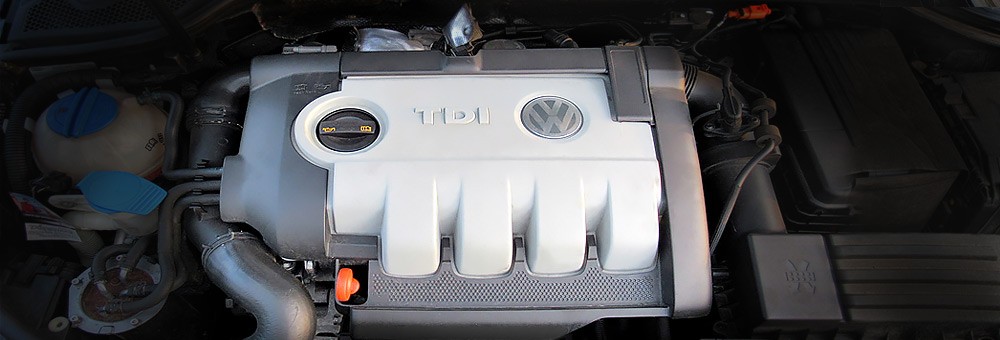
BLS 1.9 TDi engine from VW - what is the characteristic of the installed unit, for example. in Skoda Octavia, Passat and Golf?
Content
In addition to the turbocharged direct injection system, the BLS 1.9 TDi engine also has an intercooler. The engine was sold in Audi, Volkswagen, Seat and Skoda cars. Best known for such models as Octavia, Passat Golf.
What is the difference between 1.9 TDi engines?
Motorcycle production began in the early 90s. It is worth noting that motorcycles are usually divided into two groups - the first, created before 2003, and the second, made after this period.
The difference is that an inefficient turbocharged engine with a direct injection system with a capacity of 74 hp was originally used. In the second case, it was decided to use the PD - pumpe duse system with power from 74 to 158 hp. The new units are economical and provide optimum performance. These include the BLS variety.
The abbreviation BLS - what does it really mean?
The term BLS describes diesel units with a working volume of 1896 cm3, developing a power of 105 hp. and 77 kW. In addition to this division, the suffix DSG - Direct Shift Gearbox may also appear, which refers to the automatic transmission used.
Volkswagen engines also use many additional designations, grouping engines by, for example, power and maximum torque, or by application - in Volkswagen Industrial or Volkswagen Marines. The same was true for version 1.9 TDi. Models marked ASY, AQM, 1Z, AHU, AGR, AHH, ALE, ALH, AFN, AHF, ASV, AVB and AVG are also available.
Volkswagen 1.9 TDi BLS engine - technical data
The drive develops 105 hp. at 4000 rpm, maximum torque 250 Nm at 1900 rpm. and the engine was located transversely in front of the car.
The 1.9 BLS TDi engine from Volkswagen has four in-line cylinders arranged in one line - each of them has two valves, this is the SOHC system. Bore 79,5 mm, stroke 95,5 mm.
The engineers decided to use a pump-injector fuel system, as well as install a turbocharger and an intercooler. The equipment of the power unit also includes a particulate filter - DPF. The engine works with both manual and automatic transmissions.
Powertrain Operation - Oil Change, Fuel Consumption and Performance
The 1.9 BLS TDi engine has a 4.3 liter oil tank. For proper operation of the power unit, it is necessary to use substances with a viscosity class of 0W-30 and 5W-40. Oils with specification VW 504 00 and VW 507 00 are recommended. An oil change should be made every 15 km. km or once a year.
On the example of a 2006 Skoda Octavia II with a manual transmission, fuel consumption in the city is 6,5 l / 100 km, on the highway - 4,4 l / 100 km, in the combined cycle - 5,1 l / 100 km. Diesel provides acceleration to 100 km / h in 11,8 seconds, and a top speed of 192 km / h. The engine emits around 156g CO2 per kilometer and complies with Euro 4 standards.
Most common problems
One of them is oil spills. The cause is believed to be a faulty valve cover gasket. This element is located in a place where there is high temperature and pressure. Due to the rubber structure, the part may break. The solution is to replace the gasket.
Faulty injectors
There are also malfunctions associated with the operation of fuel injectors. This is a defect that is noticeable in almost all diesel engines - regardless of the manufacturer.
Since this part is responsible for supplying fuel directly to the engine cylinder, initiating its combustion, failure is associated with a loss of power, as well as a lower consumption of substances. In such a situation, it is better to replace the entire injectors.
EGR malfunction
The EGR valve is also defective. Its task is to reduce the emission of exhaust gases from the engine to the outside. The valve is responsible for connecting the exhaust manifold to the intake manifold, as well as filtering soot and deposits emitted by the engine.
Its failure is caused by the accumulation of soot and deposits, which block the valve and prevent the EGR from working properly. The solution is to replace or clean the membrane, depending on the circumstances.
Is the 1.9TDi BLS a successful model?
These problems are typical for almost all diesel engines on the market. In addition, they can be avoided by regularly servicing the motor and following the manufacturer's recommendations. The absence of serious design defects, the economic specificity of the engine and good performance make the BLS 1.9 TDi engine a successful model.